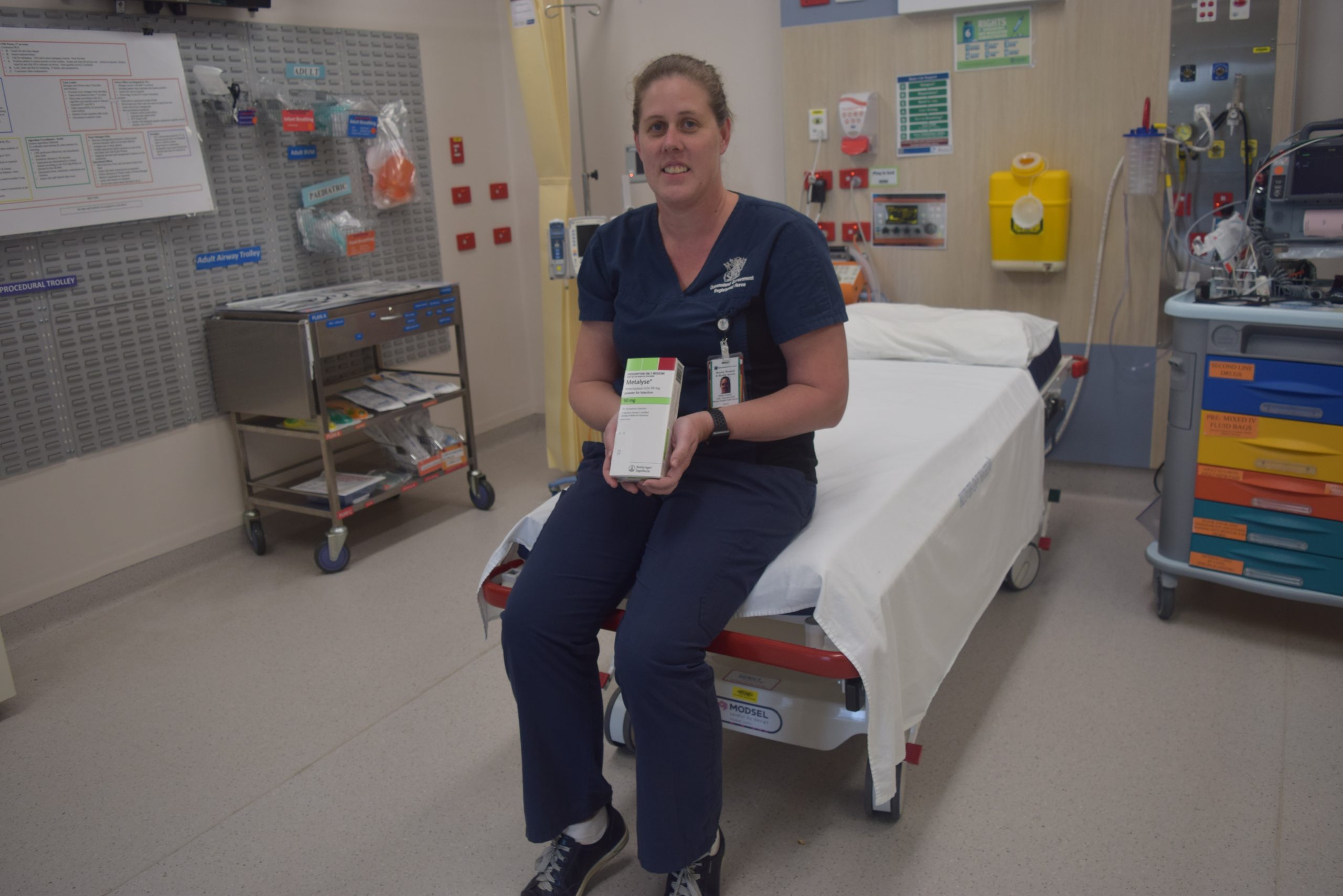Patients presenting to Proserpine Hospital with an ischaemic stroke now have access to a new clot-busting treatment gaining international attention for its reduction in long-lasting damage to the brain.
Proserpine is the first hospital in rural Queensland to be using the life-saving treatment, Tenecteplase.
Patients who receive the clot busting drug will increase their chance of no ongoing damage by more than 50 per cent.
Proserpine Hospital Senior Medical Officer Dr Justin Gibbs said when a stroke strikes, it attacks up to 1.9 million brain cells per minute.
“We only have four and a half hours after a stroke strikes to administer Tenecteplase and the sooner we give it, the better the chance of a good outcome,” he said.
“When a patient presents to hospital with a suspected stroke, they are immediately sent for a CT scan to check for bleeding, assess for the presence of a large blood clot and then rapidly reviewed by a doctor.
“If a clot is found, the doctor rings ahead to a neurologist in Mackay or Townsville who gives the ok to administer Tenecteplase.
“Once the patient consents, a nurse can administer the drug which dissolves the clot allowing blood to once again circulate to the affected area of the brain.
“They are then sent to Mackay Base Hospital for care in the Intensive Care Unit and Stroke Rehabilitation Unit or Gold Coast University Hospital if a candidate for Endovascular Clot Retrieval.”
“The aim is to undertake this process within 60 minutes.”
Clinical Nurse Consultant Vicky Grams said previously, if a patient presented to Proserpine Hospital with a stroke, they were immediately sent to Mackay Base Hospital.
“All that was done onsite is a CT scan and if the patient required anything after that they would have to go to Mackay,” she said.
“The sooner we can dissolve the clot, the sooner we get the blood back to the brain reducing the risk of permanent disability or death.
“Now we can dissolve the clot onsite with the patient only going to Mackay for monitoring and rehabilitation.”
To be eligible for Tenecteplase the patient needs to present to hospital at the first sign of stroke, where diagnostics will be done quickly and patients’ eligibility for this drug will be assessed. Vicky is urging everyone to take the time to learn about stroke.
“Any age group can be affected, so members of the public need to be aware in advance, should it happen to themselves, a partner, a relative, a friend, a work colleague or someone else,” she said.
“The quicker patients get to hospital the better as we only have a window of
opportunity to act. Know the features of stroke and call for help immediately.”
Recognise the signs of stroke
A stroke is always a medical emergency. Using the FAST test involves asking three simple questions:
Face – Check their face. Has their mouth drooped?
Arm – Can they lift both arms?
Speech – Is their speech slurred? Do they understand you?
Time – Is critical.
If you see any of these signs call 000 straight away.



